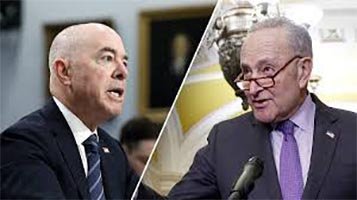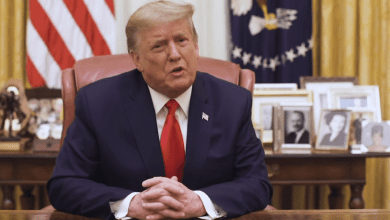The Voter ID Dilemma
No reasonable American will deny the need for voter integrity to ensure free and fair elections. One of the major issues recently dominating the news, though, is the spat between conservatives and progressives regarding state voter integrity laws. Some progressives claim that one provision present in many laws, the requirement for voters to present a photo ID, is “racist,” while many conservatives argue that it’s a common-sense approach to combat voter fraud. As a lifelong conservative, there are very few issues with which I disagree with my fellow conservatives. Requiring a photo ID to vote is one of them not because I believe this practice discriminates on the basis of race but rather that it discriminates against those of us with disabilities. I certainly don’t dispute that we need to maintain integrity in our elections, but is a photo ID requirement the only way to do so? There are some states that have strict photo ID laws and accept only a few types of ID for the purpose of voting. In addition, some require certain documents, which many people don’t even have, to obtain a photo ID. What can we do to solve the voter ID dilemma for the minority of eligible voters who don’t have a photo ID and would find it extremely difficult, if not impossible, to obtain one?
Many conservative politicians and commentators argue that photo IDs are required in virtually every aspect of life and that it’s nearly impossible to function in modern society without one. They cite that such activities as purchasing tobacco products and alcoholic beverages and boarding a commercial plane require one to show a photo ID. Let’s remember, however, that these activities are all privileges while voting is a right guaranteed in the U.S. Constitution. I personally have never taken advantage of any of the aforementioned privileges and wonder why so many conservatives assume everyone does. Some have even questioned, “What’s the big deal?” with showing a driver’s license when voting. Do they really assume every eligible voter in the nation has a driver’s license? NFL great Herschel Walker claimed that his grandfather, who would have been 117 years old, had a driver’s license. I wonder, though, whether his grandmother did, as few women drove in the early 1900s.
Questioning the intelligence of anyone who doesn’t drive is particularly humiliating to those with disabilities. How can you possibly expect a blind person to have a driver’s license? The last time I looked at the Constitution, there is no provision that prevents blind people from voting. In 2014, the National Disability Rights Network executive director, Curtis Decker, stated that the largest group of people who don’t have driver’s licenses are those with disabilities; and although he was referring to discrimination in housing, former HUD Secretary Dr. Ben Carson stated that discrimination exists primarily because of disability, rather than race.
There’s no question that we need to maintain voter integrity to ensure free and fair elections. What, then, can we do to achieve this goal without disenfranchising eligible voters? Voter ID can be an answer, provided it doesn’t discriminate against certain voters. There are some states that do not require a photo ID when voting but do require some form of identification, such as a debit or a credit card, a social security card or a birth certificate. Requiring non-photo IDs is much less restrictive and is not so likely to disenfranchise eligible voters. Because theoretically all U.S. adult citizens should already have a social security number, why can’t that be used as a universal ID for voting whether in person or when applying for an absentee ballot? Does it really make sense to require a photo ID when applying for an absentee ballot online or through the mail when the voter can’t be seen in the first place?
There is obviously nothing in the Constitution, of course, that requires one to show a photo ID in order to vote. However, it does give the state legislatures the power to regulate elections; and legislatures do have the prerogative to pass any election law they deem appropriate, provided it doesn’t conflict with the U.S. Constitution. For example, the 24th Amendment prohibits paying a poll tax as a condition for voting, and that’s precisely why some state legislatures have allowed state IDs to be issued for free in order to avoid constitutional challenges to their state photo ID laws.
Because many people of all races already have driver’s licenses, requiring a photo ID for voting is not a racist policy. However, the requirement does discriminate against people with disabilities, many of whom don’t have a driver’s license. Allowing a universal form of non-photo ID for voting, such as a social security card, could go a long way toward combating voter fraud. If only every state would consider this alternative, election integrity could be ensured without disenfranchising eligible voters.




